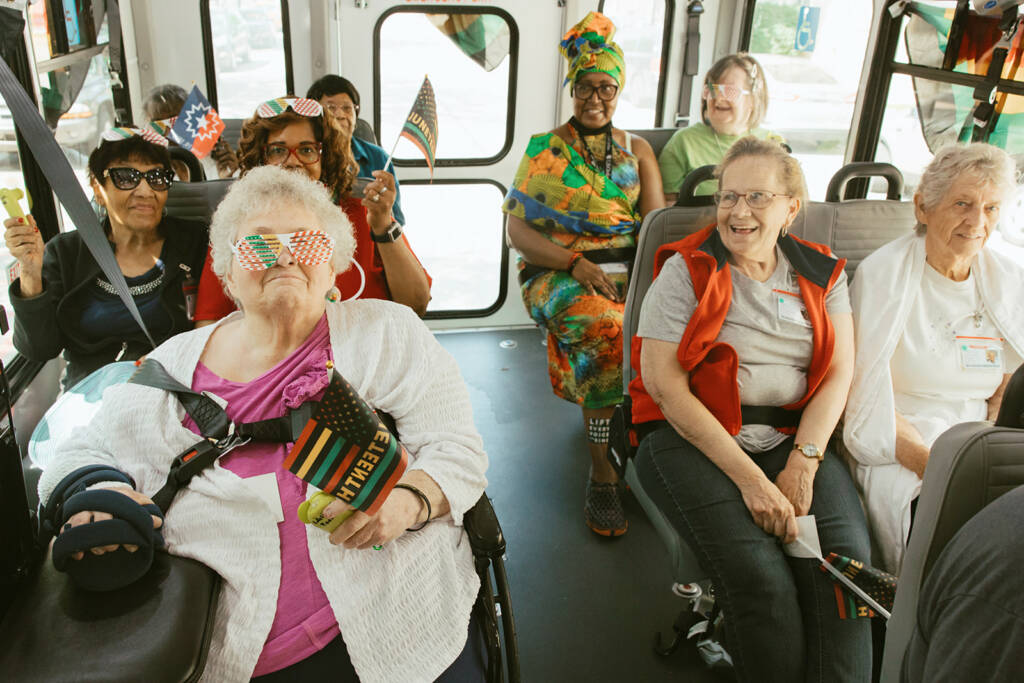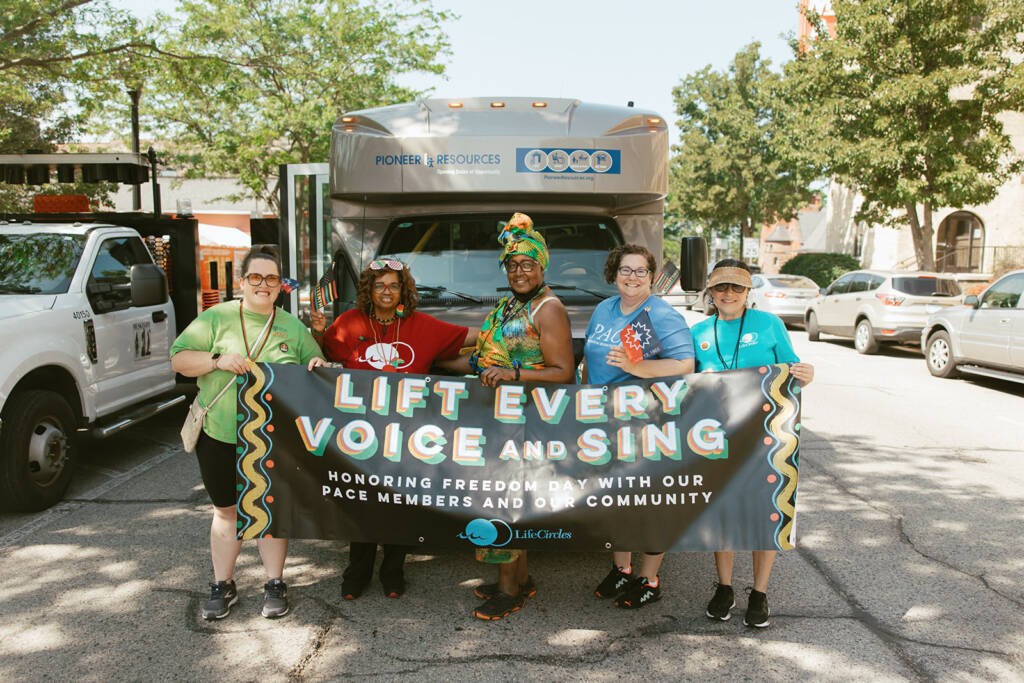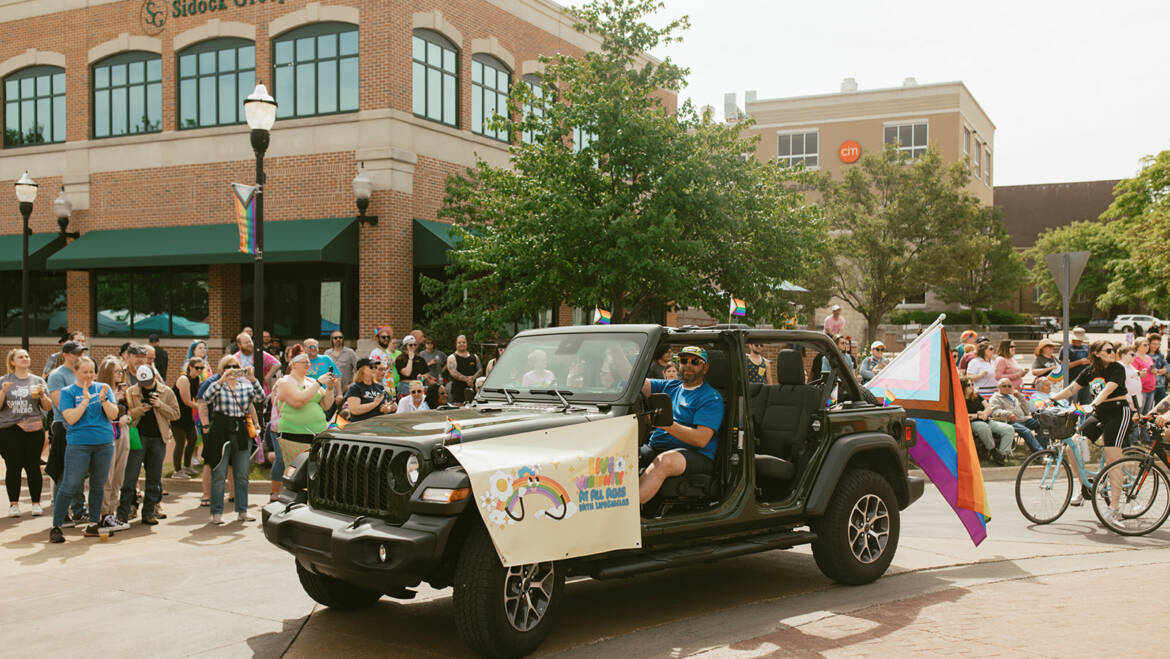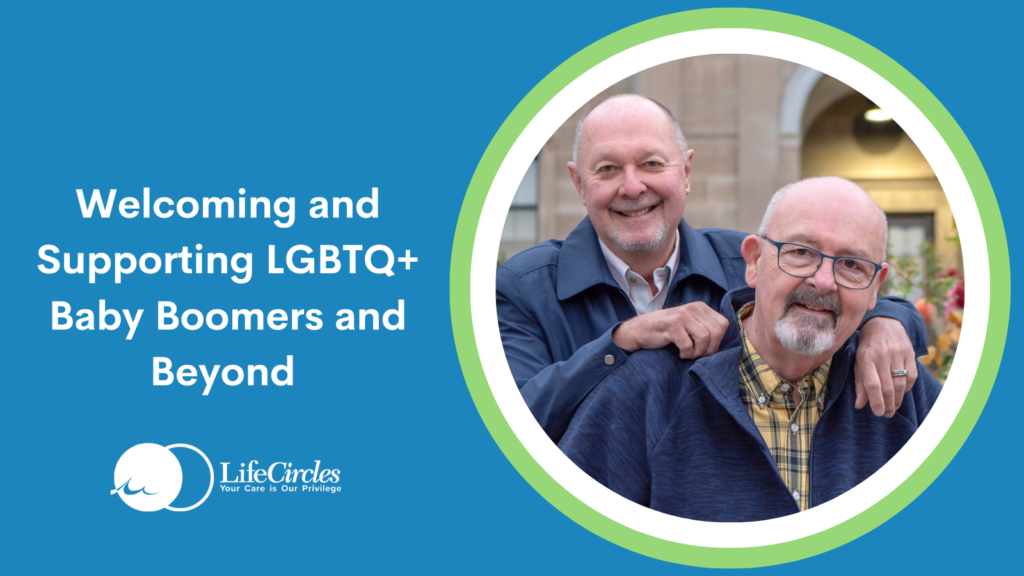
LifeCircles PACE began its journey of breaking down barriers for those in the 55+ community in 2009, and PACE programs started breaking down barriers to aging well in community in the 1970s! The work of PACE begins with inclusion. We spoke to Phil McPherson, Director of Program Integrity at LifeCircles, about why inclusivity matters in senior care and how LifeCircles engages LGBTQ+ members in what matters most to them.
For LGBTQ+ members belonging to the Baby Boomer generation, a tremendous amount of societal change has occurred in their lifetime. From early memories of Stonewall to the legalization of same-sex marriage, this generation fought for a better future. As a new chapter of their lives approaches, baby boomers in the LGBTQ+ community are wondering how the senior living and health services will be equipped to handle aging as an LGBTQ+ individual.
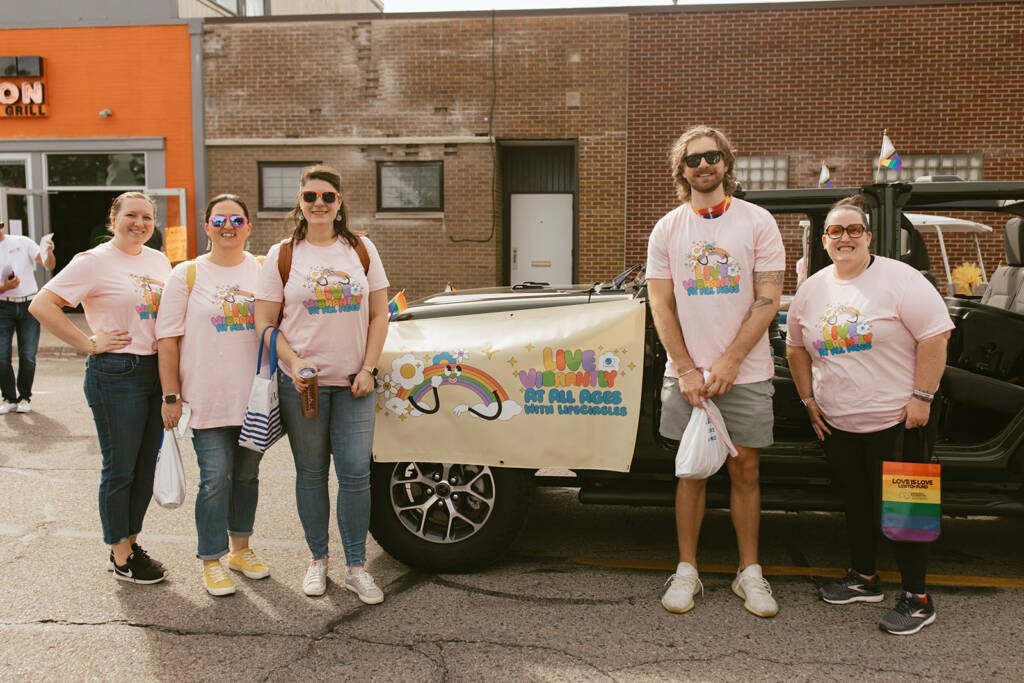
Exercising Equity within Inclusivity.
An approaching barrier for aging in the LGBTQ+ community is feeling welcomed and supported as they find a need for in-home assistance. Realistically, fewer than 20% of LGBTQ+ seniors are comfortable with being open about their sexual orientation in long-term care facilities. Many fear the discrimination they either endured or witnessed in the past, and that sentiment is transcended into a fear of hiring in-home care help to be revisited by those memories. Phil goes on to say, “They want to stay in their homes because they were brought up in an environment where they had no other place to go.” Instead of removing them from their environment, LifeCircles is bringing community to members who may not have had the luxury of being able to express their true identity in the past. How do folks know if it is safe to be themselves when they may be dependent upon individuals they don’t know coming into their most personal space for needed hands on assistance? Some individuals find themselves wrestling with whether it is safer to go back “in the closet” inside of their homes until they build trust with providers.
Staff Training
Coming from a Diversity, Education and Inclusion (DEI) background, Phil has been dedicated to updating and supporting DEI training programs for all LifeCircles staff members. “DEI training does not stop after a program ends; it’s an ongoing journey, and we are constantly learning from each other on how to be better humans.” Phil has dedicated his life to creating an equitable approach to serving others, but the commitment extends beyond him. For Phil, the first step in welcoming others is having a well-trained staff prepared for all situations.
Implicit bias training and PACE programs offer LifeCircles team members a toolkit for affirming care, deeper empathy and organizational sensitivity. “Having a diverse team is also really important, and it makes our team stronger as we walk alongside of older adults with many complex identities and values,” according to Phil. This work goes beyond education. For Phil, it reiterates how the intentional training reaffirms a the organization and team’s commitment to inclusivity.
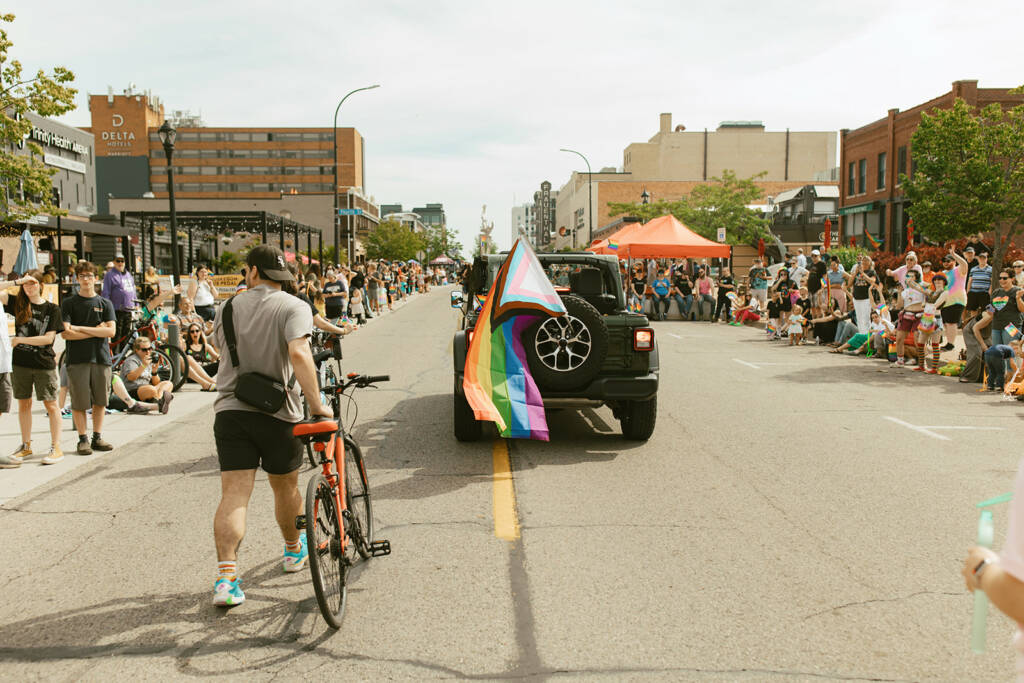
Identifying Barriers
A look into inclusive practices, Phil highlights how important data collection on LGBTQ+ populations is to address the needs of the queer community in Michigan. Through a partnership with Muskegon Pride, LifeCircles is conducting a survey to learn more about the well-being of LGBTQ+ individuals in Muskegon County. “We know there are barriers, but we’re not sure what they are.” Through data collection, those concerns can be addressed. Proactive steps to learn from members inside the community such as surveys and questionnaires is one of the best ways to continue the work toward equitable, welcoming, and all-encompassing care.
If you’re interested in learning more or sharing the survey, we encourage you to check it out here.
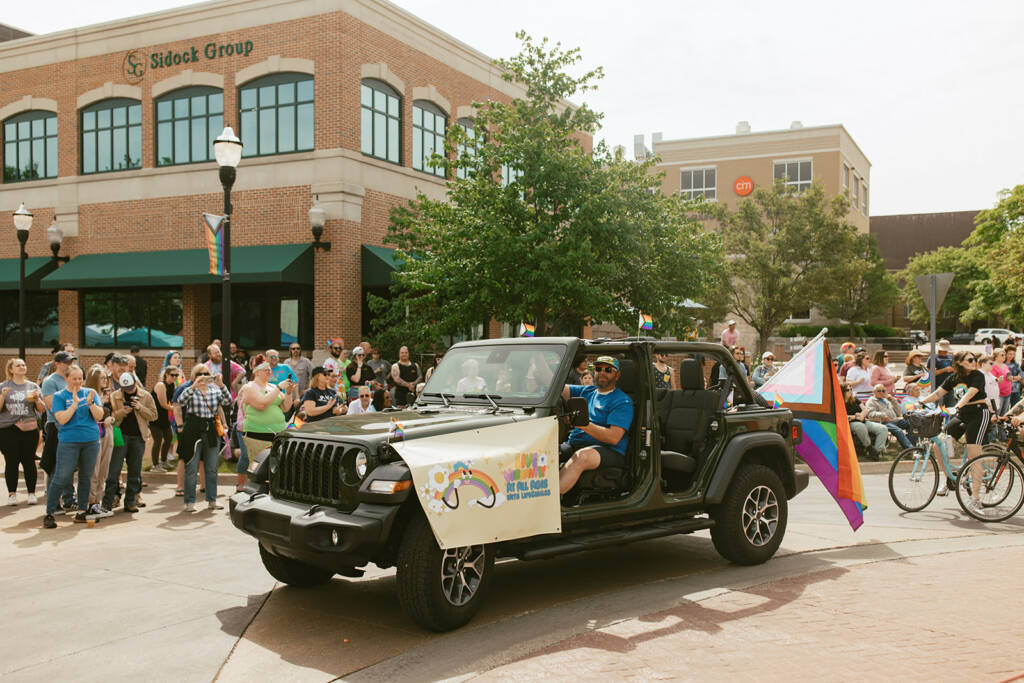
Celebrating Identity Through Building Community
With an often overlooked community, tailored programs and support are one way to confront the concerns of isolation and loneliness. Half of LGBTQ+ people 45 years and older report feeling lonely, compared to 33% of the general population, according to an AARP study. To combat loneliness and foster a welcoming community, LifeCircles has tailored services that include social activities that promote community and healthcare services that respect and uphold every participant’s identity.
From attending the Tulip Time Parade in Holland to helping LifeCircles members participate in the Muskegon Juneteenth Parade, community fun is embedded LifeCircle’s social activities. The enjoyment of being involved and celebrating a community that one identifies with is one of the greatest feelings, according to Phil. “Their smiles are contagious, and it really reaffirms the work we do at LifeCircles.” Facilitating opportunities for LifeCircles members to connect with others has offered deep meaning for a population that has faced so much isolation. While Phil is inclined to say these are small steps toward inclusivity, his work brings joy and restores a sense of community that was very difficult to find when LifeCircles members were coming of age. For a generation that worked so hard to claim a space of safety and peace, LifeCircles is truly about giving back to this robust community in the same way. Phil notes that all work in relationship building starts with respect for the building blocks of inclusivity. “Through eliminating triggers of the past to increase present-day quality of life, we can reduce invisible barriers in the senior care industry”. For Phil, giving back to this community is important and sets a precedent for others working to serve older adults. LifeCircles bases all of its work upon a foundation of deep relationships with its members. Within that bedrock they are proud to create welcoming environments, ensuring that everyone feels respected, valued, and supported as they age.
